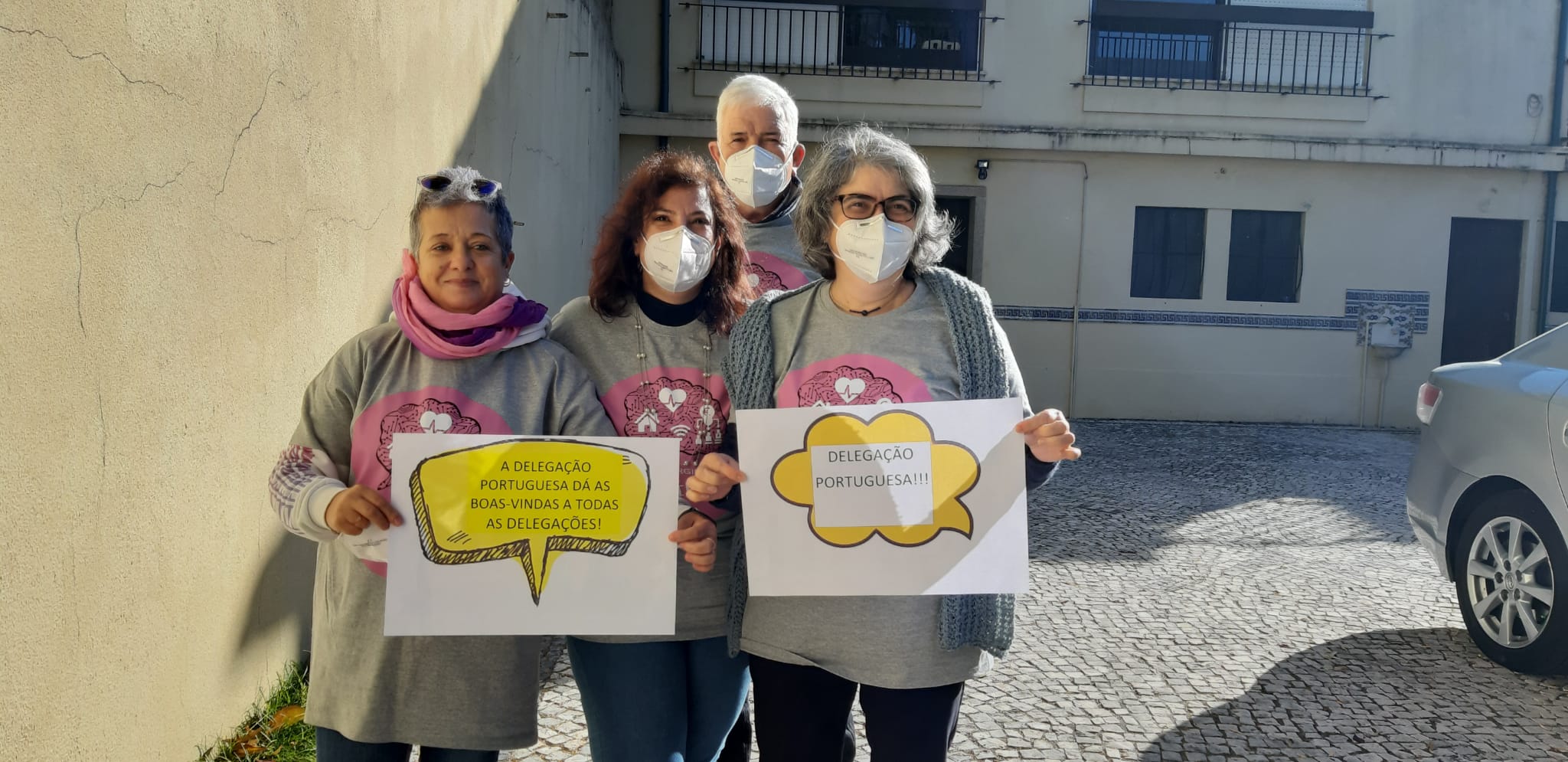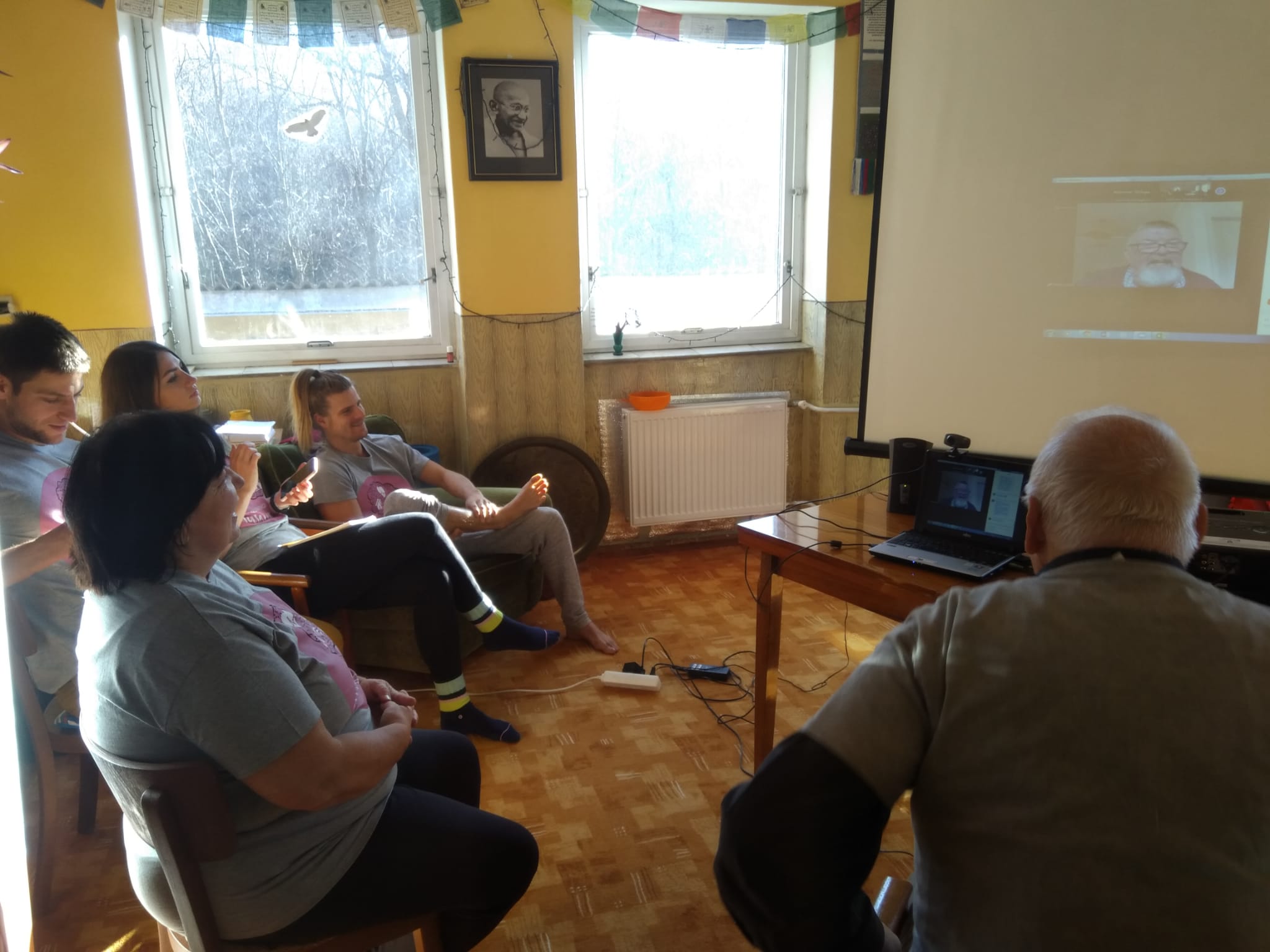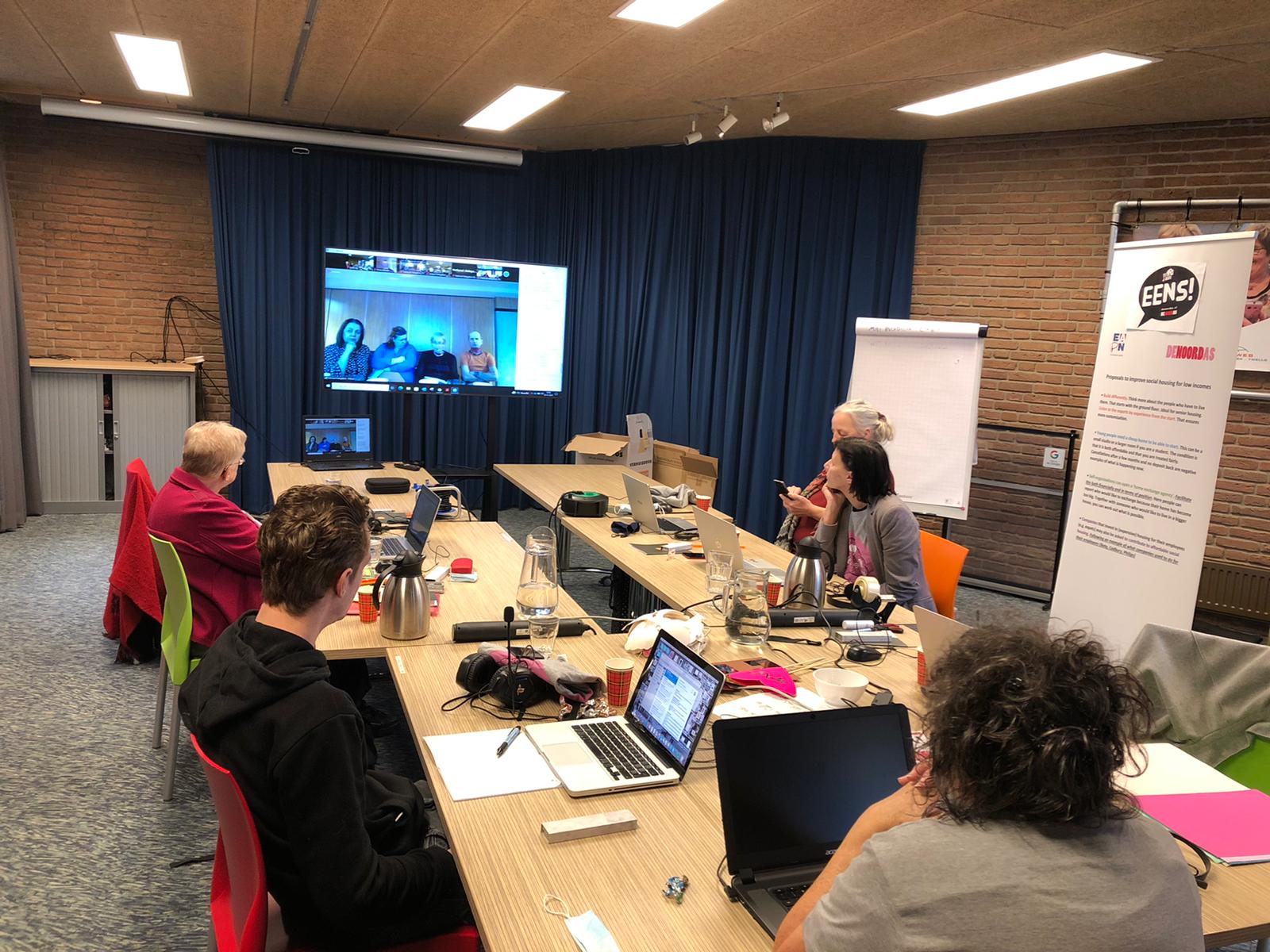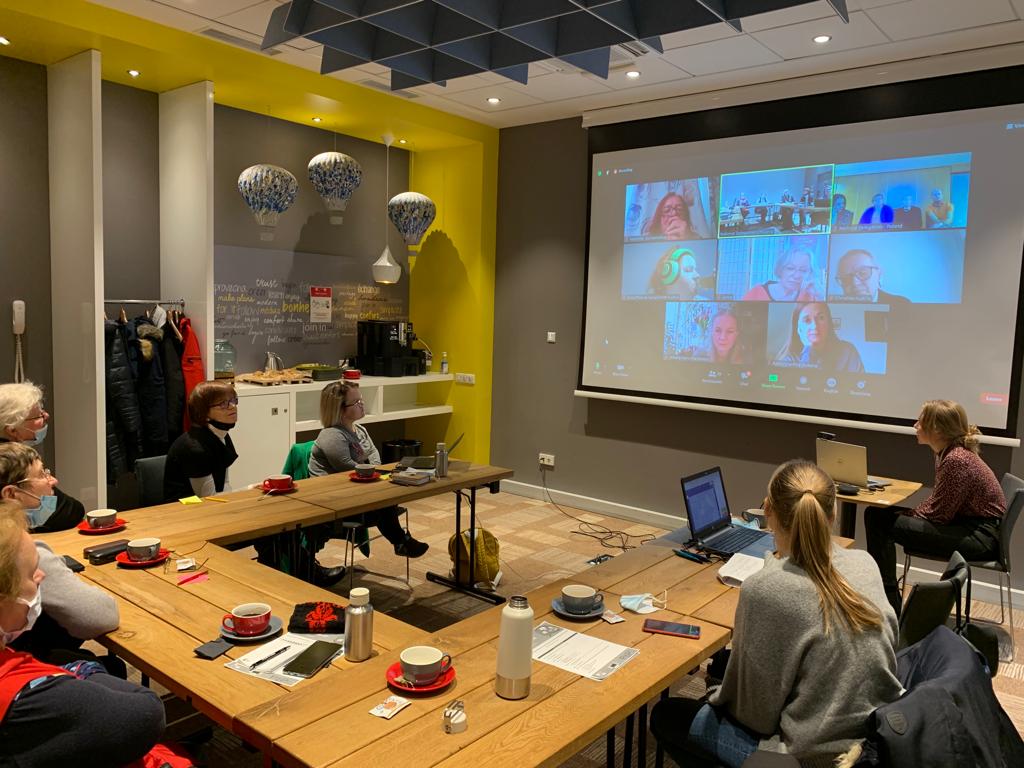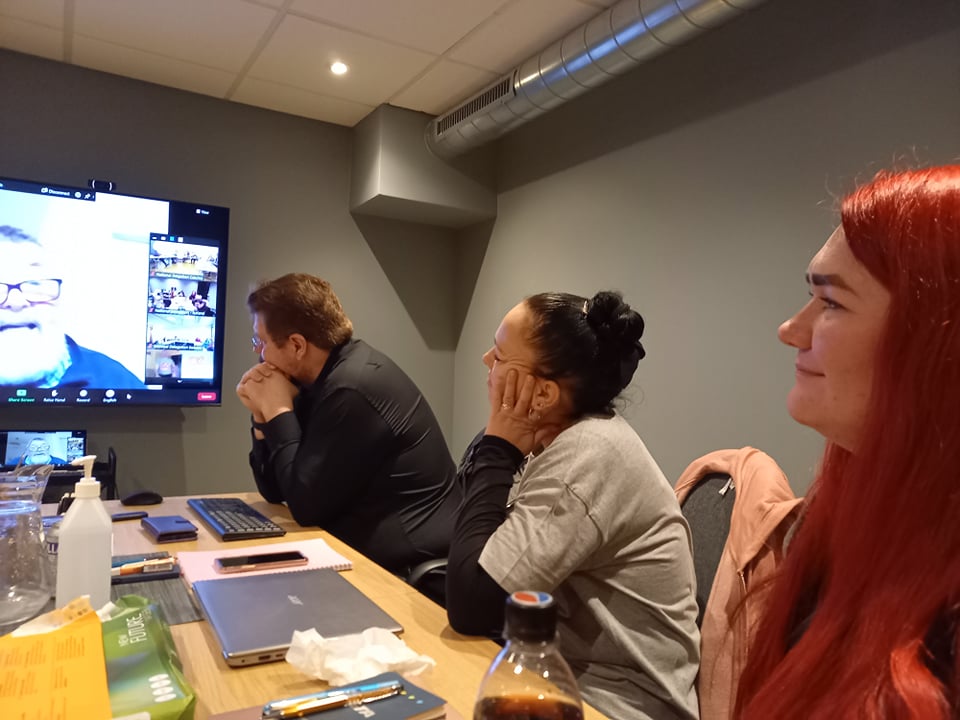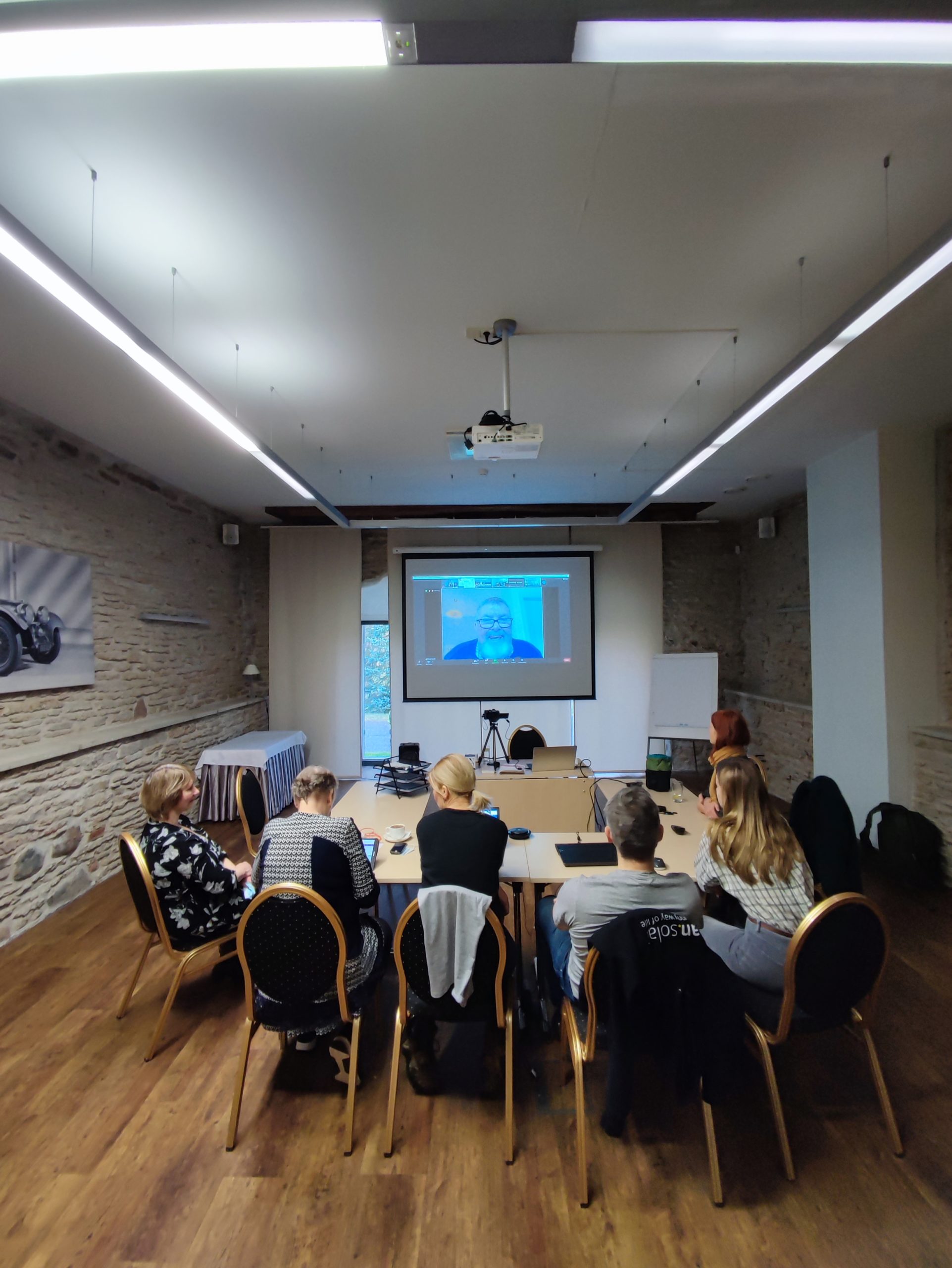Objectives of the 2021 European meeting
This years’ Meeting of People experiencing poverty centred on four important discussion topics:
- Housing
- Adequate Minimum Income
- Good quality health care services
- Digitalisation and the access to services will be considered as a cross-cutting issue. How has access to digital technology (access to internet, access to devices, knowledge of using technology) impacted the access to the services mentioned above and others?
Key messages
For more than 20 years, the European Anti-Poverty Network and DG Employment have worked together, very often with the Presidencies of the European Council, to organise an annual European meeting of People Experiencing Poverty. At least 150 people with direct experience of poverty come together, following a period of national level deliberations, to share their insights and experiences with decision makers and influencers at the European level. The meetings provide a space for people experiencing poverty across Europe to use their knowledge and analysis of poverty and exclusion to contribute to key areas of policy development such as: adequacy of income, child poverty, housing and homelessness, indebtedness, the links between discrimination and poverty, the impact of liberalisation on public services, decent work, progress made on achieving the EU poverty reduction target, in-work poverty and most recently the link between poverty and education.
The meetings are a concrete example of bridging the gap between the European Union and its citizens. They provide early warning signs of negative trends impacting on poverty and social cohesion, and highlight positive practices emerging in different countries. The meetings are an empowering experience for people experiencing poverty, and many participants go on to play important roles in anti-poverty organisations and take further actions in their communities. The meetings were conceived as a contribution to the OMC on Social Inclusion and they continue to contribute to key EU debates and policy frameworks such as the European Pillar of Social Rights.
In 2021 participants came up with a number of key messages which they would need to see the European Institutions, and their governments, take meaningful action on. These are outlined below.
Access to Healthcare
1. Investment in adequate healthcare
- Access to healthcare is a fundamental human right, but very high costs mean that people in poverty cannot access this right! Public healthcare provision is limited and under-funded, private providers are very expensive; health insurance doesn’t cover everybody, and it does not cover all health services (dental care and other essential health needs).
- The Covid-19 pandemic worsened a pre-existing situation: specialised doctors are very few and with long waiting lists; Covid-19 patients are prioritised and people with other health conditions are left behind; mental healthcare is crucial (especially for young people and the elderly) and the suicide rates of people experiencing poverty are increasing.
- Secure funding for the public healthcare system and counteraction of the rapid commercialisation of the healthcare sector, and fraud must be ensured.
- For more beds in hospitals/care institutions,
- For more training for healthcare professionals (to become more people-friendly, grow their
- cultural awareness).
- Decentralisation and the provision of healthcare services all over the territory including smaller cities
- and towns is needed.
2. Ensure healthcare is accessible for all
- Legal provisions to address:
- Loopholes in the law need addressing to avoid that some people fall into the cracks – for instance in Malta, for a while you couldn’t access social benefits if you didn’t have a postal address which made people in a situation of homelessness even more vulnerable and in difficulty to pay for their healthcare needs,
- Secure accessibility for all (e.g. alternatives to digitalisation because not everyone can afford a smartphone/an Internet connection, etc.)
- Specialised services (dental health, mental health, etc) should be affordable and really accessible to people living in poverty or social exclusion and should not depend on income.
3. A prevention proposal
- Provide for programmes, boosting self-confidence and physical activities and keeping people in better mental and physical health. They should be accessible to everyone, especially vulnerable and excluded people and young people.
Adequate minimum income
1. Adequate enough for a life in dignity
- Minimum income should be high enough to enable people to live with dignity, be part of society and end social exclusion;
- Minimum Income should guarantee that families are able to support their children to have access to education. It should be adequate and should be considered an investment in people.
2. Enforceable action is needed, with genuine participation
- An EU Recommendation is not strong enough, a Directive is needed. We need the genuine participation of people experiencing poverty and their organisations in designing the system and defining the level of adequacy.
- We should have a concrete European Directive on Minimum Income with concrete measures and budget in order to really contribute to eradication of poverty
Housing
Access to adequate, quality and affordable quality housing needs to be prioritised as a human right.
1. Affordability
- Guarantees should be paid by the state to be able to access the private rental market
- Housing prices must be in line with the costs of living
- More inclusive social housing & affordable housing has to be made available in rural and urban
- areas. Rent prices are too high and many people pay more than 40% of their income on housing alone
2. Tailoring
- Long-term housing solutions and adapted housing should be provided (student housing, housing for the elderly)
- Housing provisions must encompass the needs of Persons with disabilities, Travellers, Roma, and refugee communities. Being directed to targeted vulnerable groups, this could work as a real prevention measure
3. Accessible housing
- End all exclusion based on race, gender, low income, unemployment & find a way to allocate vacant housing to those in need of housing.
4. Healthy living for all
- All living spaces must be well insulated to combat energy poverty, and should be in neighbourhoods where there is access to services.
Digitalisation and access to services
- Digital solutions are necessary but should be a complement rather than a replacement for human interaction and face-to-face service provision. Digitalisation should not become an obligation excluding those who are not able, or not willing to access and use digital services.
- Digitalisation is becoming increasingly present in our society, accelerated by the impact of COVID. There is a need to ensure equal and affordable access to training, digital equipment and internet infrastructure for all – particularly the young and the elderly, people with disabilities and people with no or little education – without detriment to digital safety and critical thinking to detect misinformation.
For further information, please contact Magda Tancau (Membership Development & Participation Officer) magda.tancau@eapn.eu



